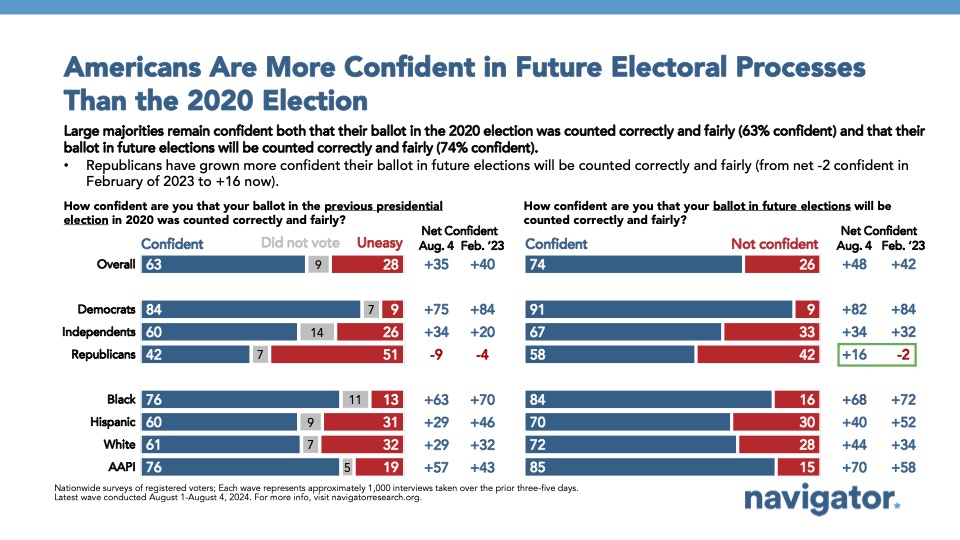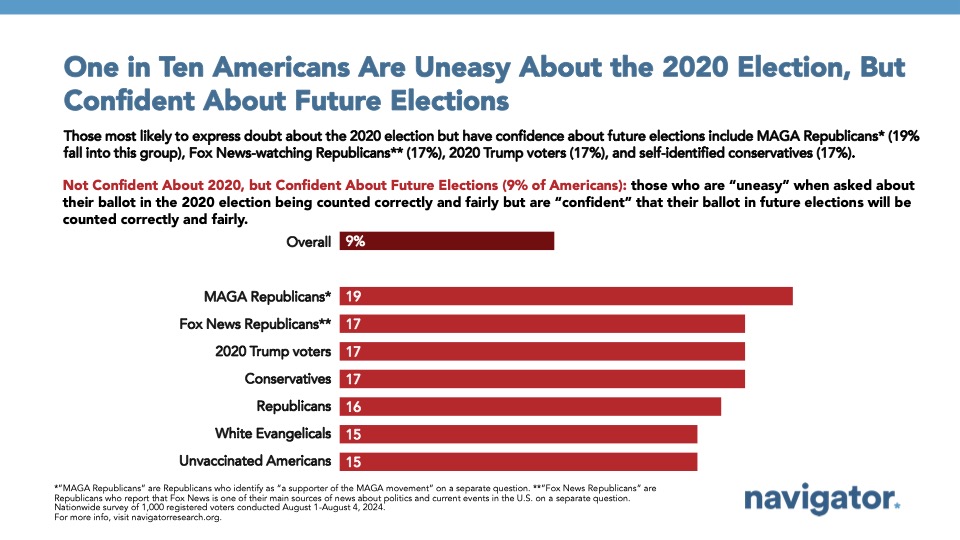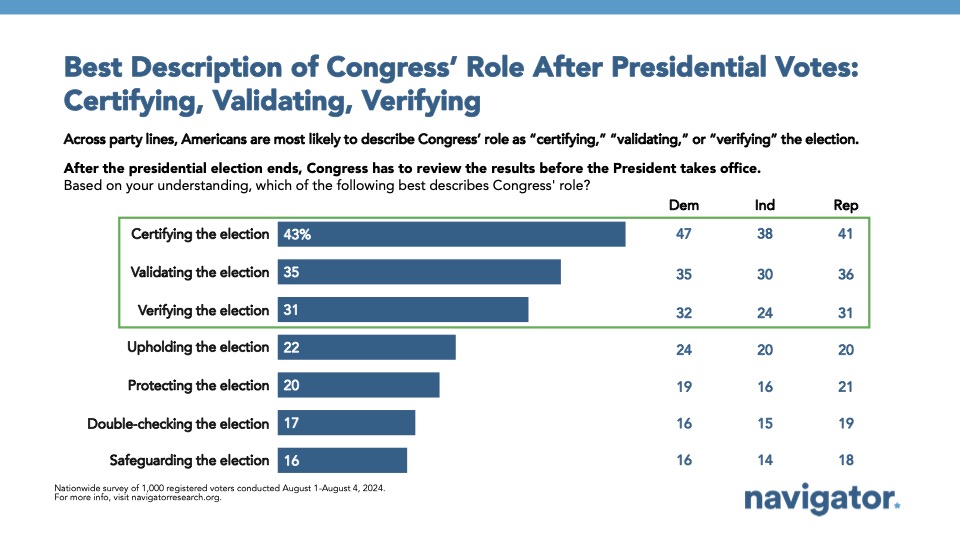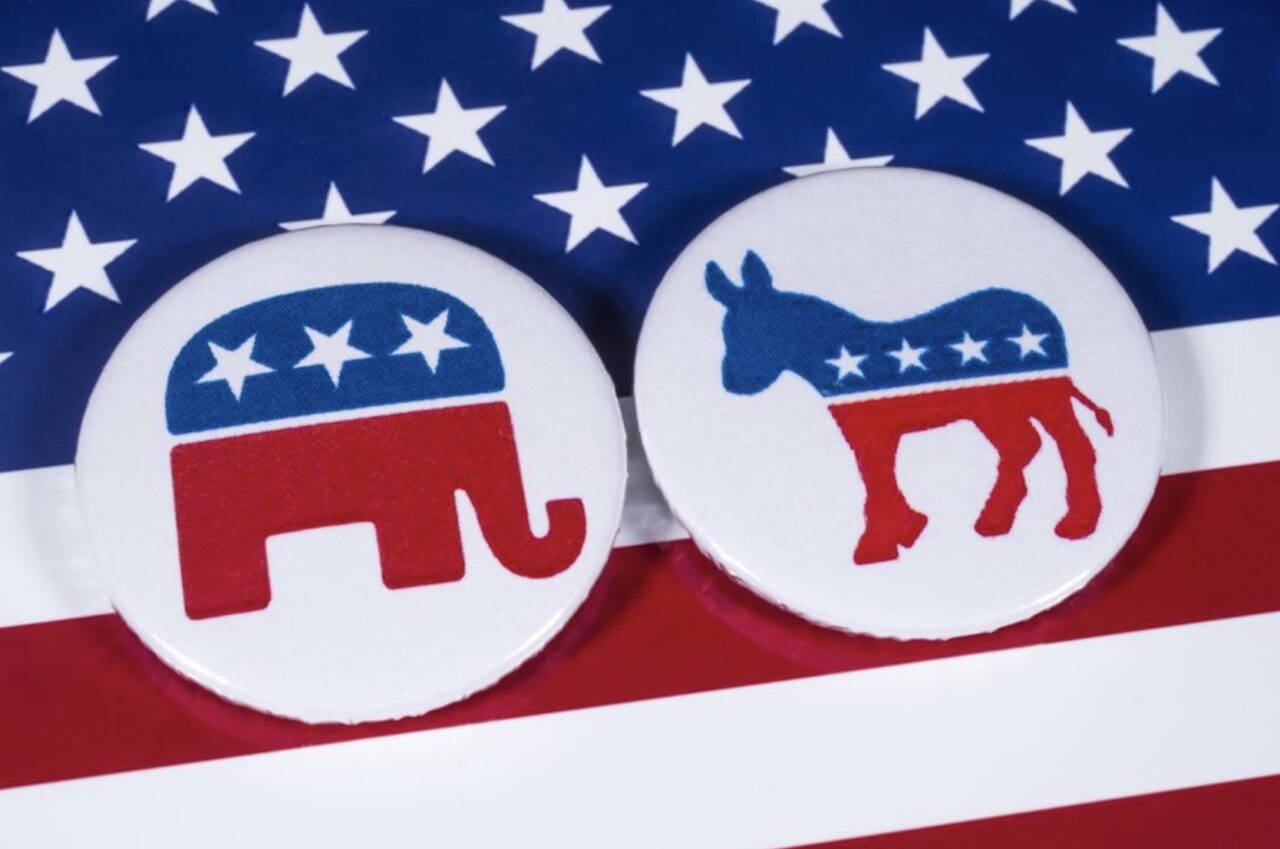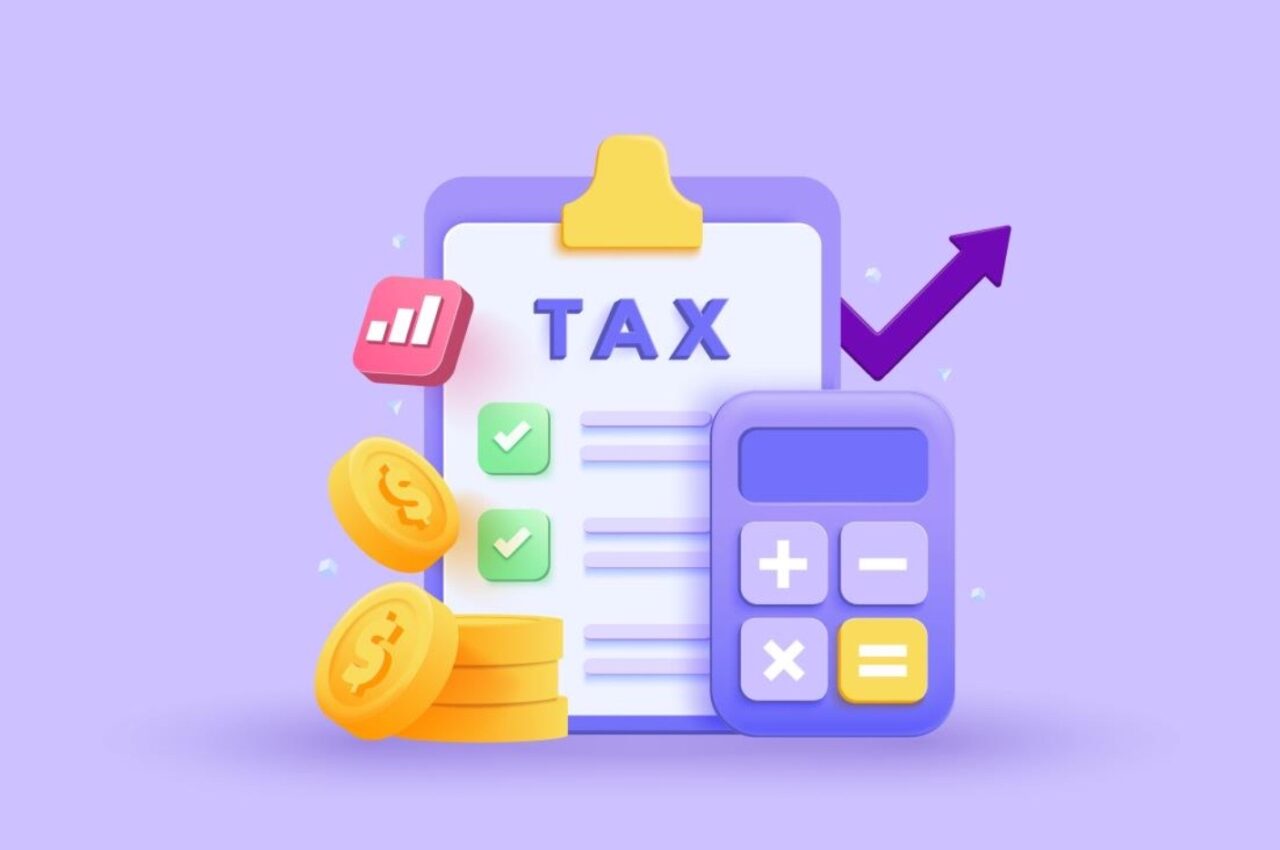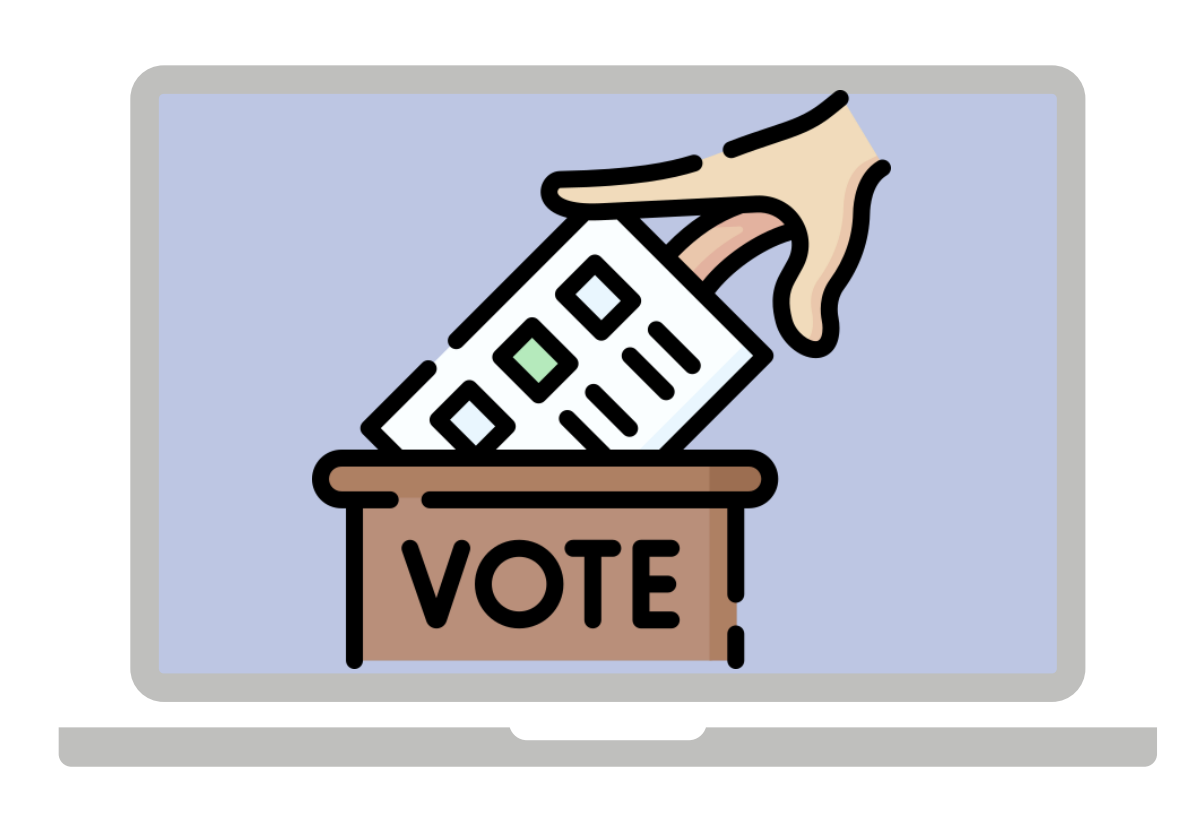Poll: Future Elections in the U.S.
This Navigator Research report contains polling data on Americans’ confidence in U.S. elections, including the share who believe their previous presidential ballot in 2020 was counted fairly and correctly, whether they believe their future ballots will be counted fairly and correctly, and how Americans describe the role of Congress in reviewing the results after the end of presidential election.
Three in four share say they are confident that their future ballot will be counted fairly and correctly.
Two in three Americans are confident their ballot in the previous presidential election was counted correctly and fairly, with a greater share who believe their ballots will be counted fairly and correctly in the future. 63 percent of Americans are confident that their ballot in the 2020 presidential election was counted correctly and fairly, with 42 percent who are “very confident.” Across partisanship, Democrats are most confident (84 percent), as are three in five independents (60 percent); however, fewer than half of Republicans are confident their ballot was counted correctly and fairly in 2020 (42 percent). A majority of Republicans who do not identify with the MAGA movement are confident their previous ballot was counted correctly and fairly (51 percent) compared to just one in three Republicans who identify with the MAGA movement who agree (34 percent).
- Three in four Americans believe their future ballot will be counted correctly and fairly (74 percent), 11 points higher than the share who think their ballot was counted correctly and fairly in the last presidential election. While Americans are more confident in future ballots being counted correctly than the last presidential election across partisanship, Republicans are 16 points more confident (58 percent) while Democrats (91 percent) and independents (67 percent) are each 7 points more confident in this election than 2020. Confidence in ballots being counted correctly and fairly is 19 points higher among MAGA Republicans (53 percent) and by 14 points higher among non-MAGA Republicans (65 percent confident) than their confidence levels about their ballots being counted correctly in the 2020 presidential election.
- 9 percent of Americans are uneasy about their 2020 ballot, but confident about their future ballot being counted fairly and correctly. Groups most likely to be in this group include MAGA Republicans (19 percent), Republicans who regularly watch Fox News (17 percent), 2020 Trump voters (17 percent), and those who identify as conservatives (17 percent).
- Across racial demographics, Asian Americans and Pacific Islanders and Black Americans feel most confident that their future ballot will be counted correctly (85 percent and 84 percent, respectively), with three in five Hispanic and white Americans who say the same (61 percent and 60 percent, respectively).
Americans are most likely to describe Congress’ role after a presidential election as “certifying,” “validating,” or “verifying” the election.
Americans believe the words “certifying,” “validating,” and “verifying” the election best describe Congress’ role of reviewing the election results before the president takes office. In describing the role of Congress in reviewing election results prior to the president taking office, Americans say the best descriptors of Congress’ role are that they are “certifying the election” (43 percent), followed by “validating the election” (35 percent) and “verifying the election” (31 percent). Across partisanship, “certifying the election” is considered the best descriptor among Democrats (47 percent), Republicans (41 percent), and independents (38 percent).
- Across racial demographics, white Americans are most likely to select “certifying the election” (46 percent) while there is a more even split among people of color between “certifying the election” and “validating the election” (34 percent each).
- Americans over the age of 65 are most likely to describe Congress’ role as “certifying the election” (59 percent); among Americans under the age of 35, they are evenly split between saying Congress’ role is best described as “verifying the election” (35 percent), “validating the election” (34 percent), and “certifying the election” (32 percent). College-educated Americans are 19 points more likely to describe Congress’ role as “certifying the election” (56 percent) over “validating the election” (37 percent), while Americans without college degrees are more evenly split between “certifying the election” (38 percent), “validating the election” (34 percent), and “verifying the election” (30 percent).
- A narrow plurality of Americans trust the Democratic Party more to handle threats to democracy (net +3; 44 percent the Democratic Party – 41 percent the Republican Party), including independents by a 9-point margin (35 percent Democrats – 26 percent Republicans).
About The Study
Global Strategy Group conducted a public opinion survey among a sample of 1,000 registered voters from August 1-August 4, 2024. 100 additional interviews were conducted among Hispanic voters. 75 additional interviews were conducted among Asian American and Pacific Islander voters. 100 additional interviews were conducted among African American voters. 100 additional interviews were conducted among independent voters. 200 additional interviews were conducted among voters ages 18-34. The survey was conducted online, recruiting respondents from an opt-in online panel vendor. Respondents were verified against a voter file and special care was taken to ensure the demographic composition of our sample matched that of the national registered voter population across a variety of demographic variables. The margin of error for the full sample at the 95 percent level of confidence is +/- 3.1 percentage points. The margin for error for subgroups varies and is higher.

